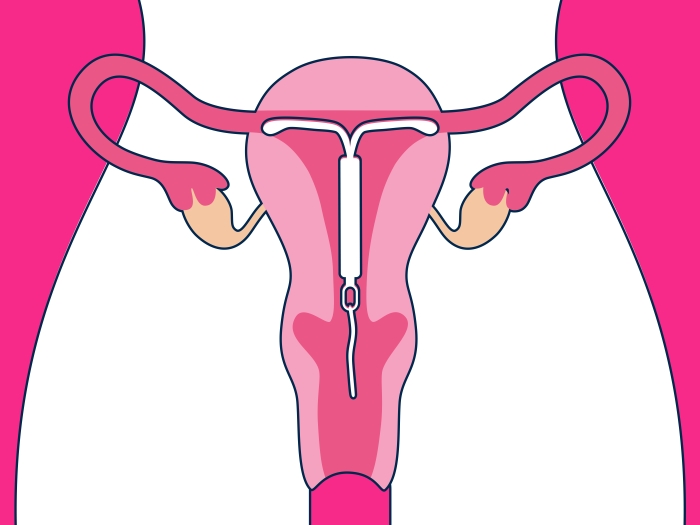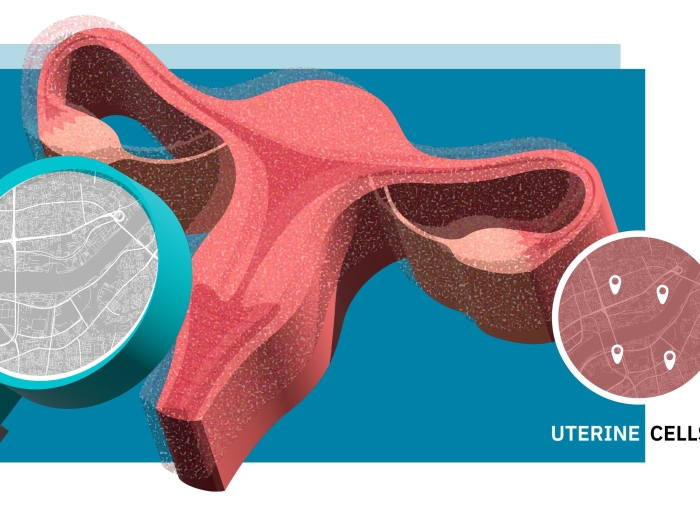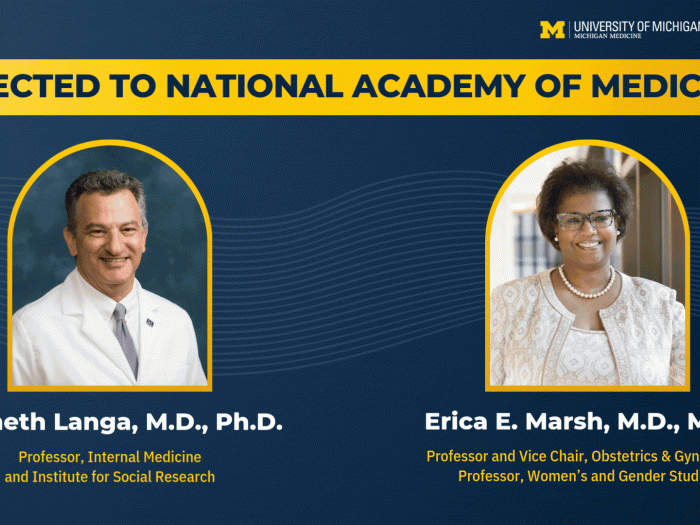-
Education Hub -
Medical Student Programs -
Residency -
Fellowships & Advanced Training Programs -
Cancer Genetics & Breast Health -
Complex Family Planning -
Global Women's Health -
Gynecologic Oncology -
Hospitalist -
Maternal Fetal Medicine -
Minimally Invasive Gynecologic Surgery -
Pediatric & Adolescent Gynecology -
Reproductive Endocrinology & Infertility -
Urogynecology & Pelvic Reconstructive Surgery -
Women's Health
-
-
Opportunities -
Facilities & Spaces
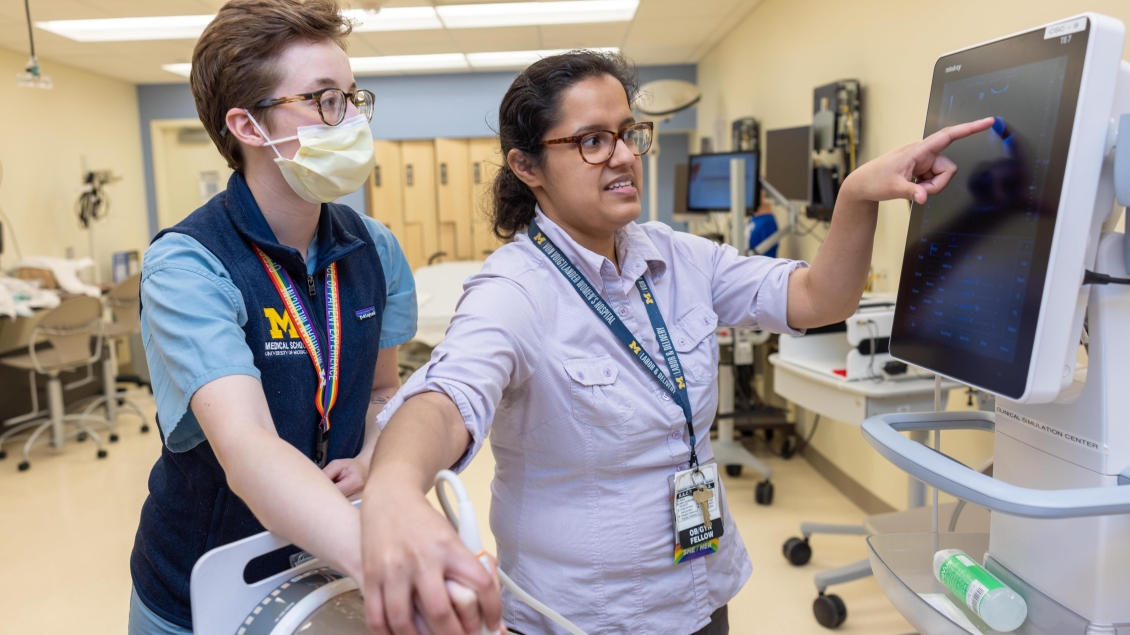
The goal of the Maternal Fetal Medicine fellowship is to help advanced trainees identify their paths as future leaders in maternal and fetal medicine and to provide them with resources for their individual success.
Learn more by jumping to the sections below:
Our program is structured to provide 12 months of research experience, 18 months of clinical training, and the opportunity to take 6 months of electives (including core clinical time, research time, or off-service clinical electives).
Our trainees have ample opportunities to engage with high-complexity cases. Trainees spend 2 months as Labor and Delivery Supervisors on the Labor and Delivery Unit which services over 4,900 births per year.
They also have the opportunity to spend 4 months in our Fetal Diagnostic and Treatment Center which sees more than 15,000 patients a year and offers a full range of fetal procedures including intrauterine transfusion, laser ablation for twin-to-twin transfusion syndrome, in utero myelomeningocele repair, and tracheal occlusion for severe congenital diaphragmatic hernia.
In addition, trainees will participate in specialty outpatient prenatal clinics including diabetes in pregnancy, program for women with substance use disorders in pregnancy, and Cardio-Obstetrics.
Our trainees benefit from nationally renowned faculty who are dedicated to the education and mentorship of our learners.
Fellows spend their clinical time at the main University of Michigan campus. Clinical time is divided between outpatient clinics, the Fetal Diagnostic and Treatment Center, the antepartum service, and labor and delivery in addition to core rotation and other electives.
Fellows participate in multiple clinics including fellow continuity clinic, diabetes in pregnancy clinic, preconception counseling clinic, clinic for women with substance use disorders in pregnancy, Cardio-Obstetrics clinic, and high-risk pregnancy clinic. Fellows both supervise resident physicians and independently see patients under the supervision of division faculty. Time in the Fetal Diagnostic and Treatment Center is spent learning to obtain ultrasound images early in fellowship and progresses to interpreting scans and counseling patients.
Fellows participate in a wide array of fetal procedures from amniocentesis to intra-uterine transfusions to laser ablation of the communicating vessels for twin-to-twin transfusion. Fellows occupy a leadership role on labor and delivery both when supervising normal labor as well as when leading the inpatient antepartum team. Fellows actively participate in surgical procedures on labor and delivery including cerclage placement and cesarean hysterectomies, as well as attending vaginal and cesarean births. In addition, training includes one month in the medical or surgical ICU as well as two months focused on genetics and genomics.
Fellows are supported to pursue research that inspires them. Recent fellows have engaged in a variety of studies from randomized controlled trials on labor and delivery to basic science projects. Fellows are able to engage with both faculty within the division of Maternal-Fetal Medicine, as well as with faculty mentors from across the University of Michigan campus.
Fellows have weekly teaching sessions designed to support their education and professional development. The sessions are led by faculty from the Maternal Fetal Medicine Division as well as faculty from throughout the Medical School to allow for a breadth and depth of mentorship and education.
The Department is home to 11 Board-certified and non-Board-certified clinical and research fellowships in obstetrics and gynecology. To promote cross-specialty collaboration, all trainees take part in our didactic curriculum. These are ½ day educational seminars on numerous topics relevant to clinical research and academic leadership.
Topics include research design and implementation, identifying funding opportunities, manuscript timelines and preparation, how to be an effective teacher and employment opportunities. In addition, the department sponsors social events for fellows and advanced trainees across all specialties to further encourage collaboration and to help fellows build both a professional and personal network.
The U-M Medical School Department of Obstetrics and Gynecology is committed to the ongoing development and education of our faculty, staff, and learners. Each year, we provide over 100 CME activities for physicians and healthcare professionals to enhance learning and improve patient outcomes.
Minimum Requirements
- ERAS application
- Personal statement
- Letters of recommendation - a minimum of 3 (ERAS can hold up to 4)
- USMLE/COMLEX scores
- Medical School Transcript
- Photo
No supplemental documentation is required.
We do not review CREOG scores in our assessment of applicants. Score reports are not required.
Application Deadline
The application deadline for an August 2025 start date is Sunday, April 28, 2024. Invitations will be extended on Monday, May 20, 2024. Virtual interview dates will be Monday, July 15, 2024, and Friday, July 19, 2024. Fellowship applications are accepted via the Electronic Residency Application Service (ERAS).
How to Apply
Fellowship applications are accepted via the Electronic Residency Application Service (ERAS).
The University of Michigan offers highly competitive salaries and generous benefits to our fellows and advanced trainees. Trainee salary will be commensurate with that of a House Officer at an equivalent level of training based on the HOA contract.
Fellows in Maternal Fetal Medicine are developing the knowledge, skills and experience vital to become successful leaders in the field. We emphasize teamwork, excellence, and leadership while preparing fellows to succeed as clinically skilled, compassionate obstetrician-gynecologists.
- Ashley Hesson, MD, PhD
2021-2024 Maternal-Fetal Medicine Fellow
Next Step: Joining the MFM faculty at Michigan Medicine - Ajleeta Sangtani, MD
2020-2023 Maternal Fetal Medicine Fellow
Next Steps: Assistant Professor, Michigan Medicine - Caitlin Clifford, MD
2019-2022 Maternal Fetal Medicine Fellow
Next Steps: Michigan Medicine
- Patricia Greco, MD
2018-2021 Maternal Fetal Medicine Fellow
Next Steps: Michigan Medicine - D'Angela Pitts, MD
2017-2020 Maternal Fetal Medicine Fellow
Medical School: Howard University College of Medicine
Residency: Howard University College of Medicine
Next Steps: Henry Ford Health System
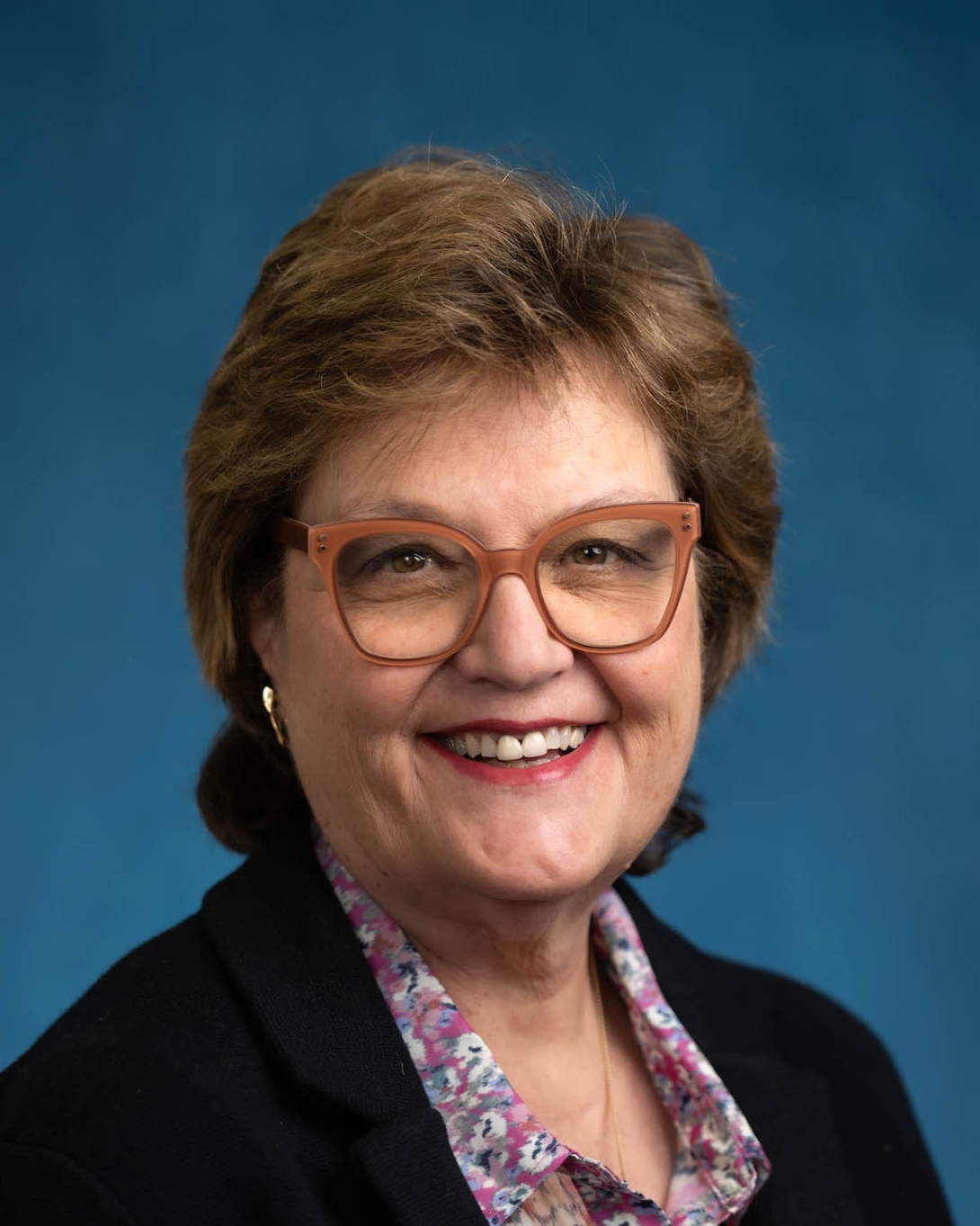
Chair, Department of Obstetrics and Gynecology
Professor of Obstetrics and Gynecology
Professor of Urology
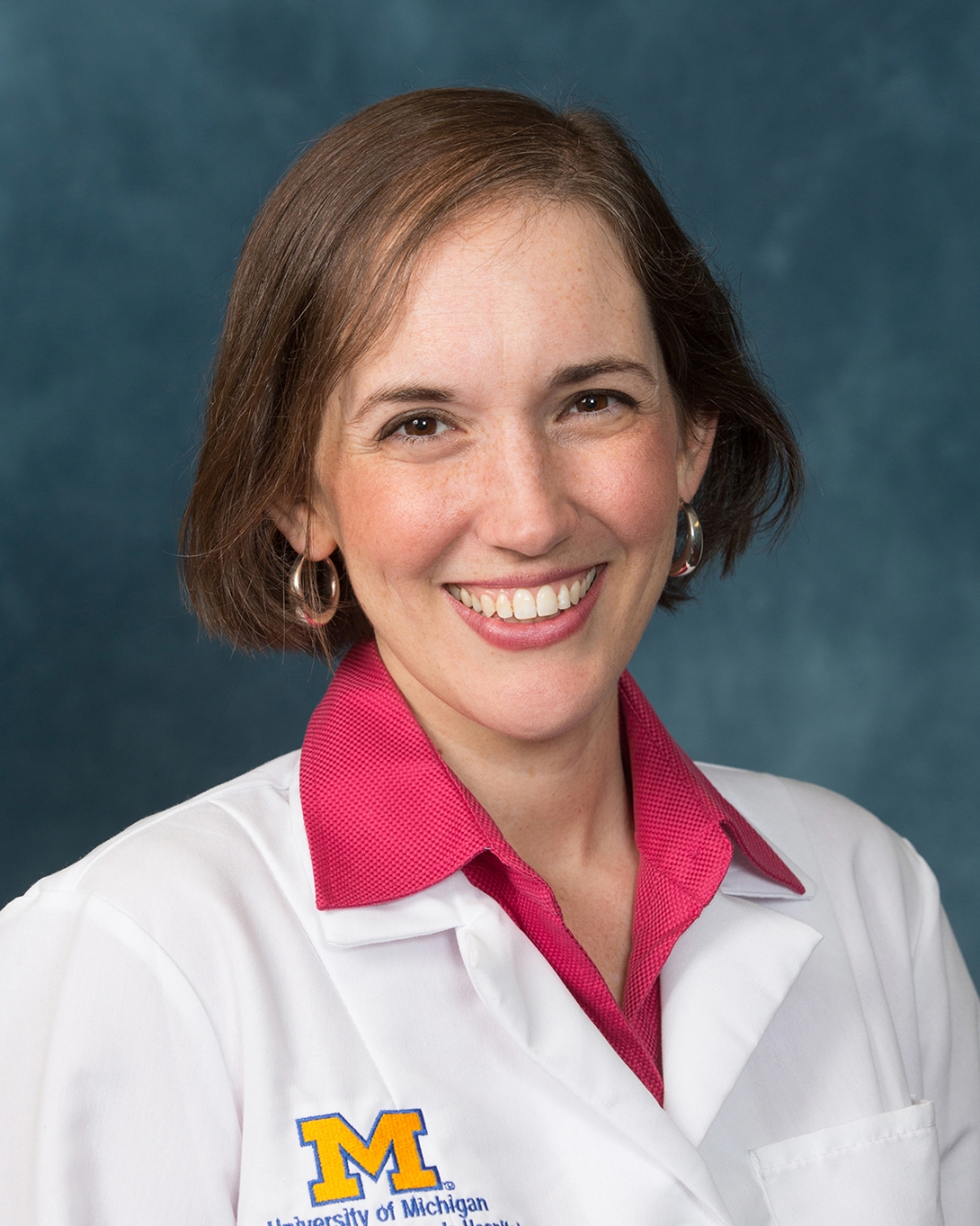
Program Director, Maternal Fetal Medicine Fellowship
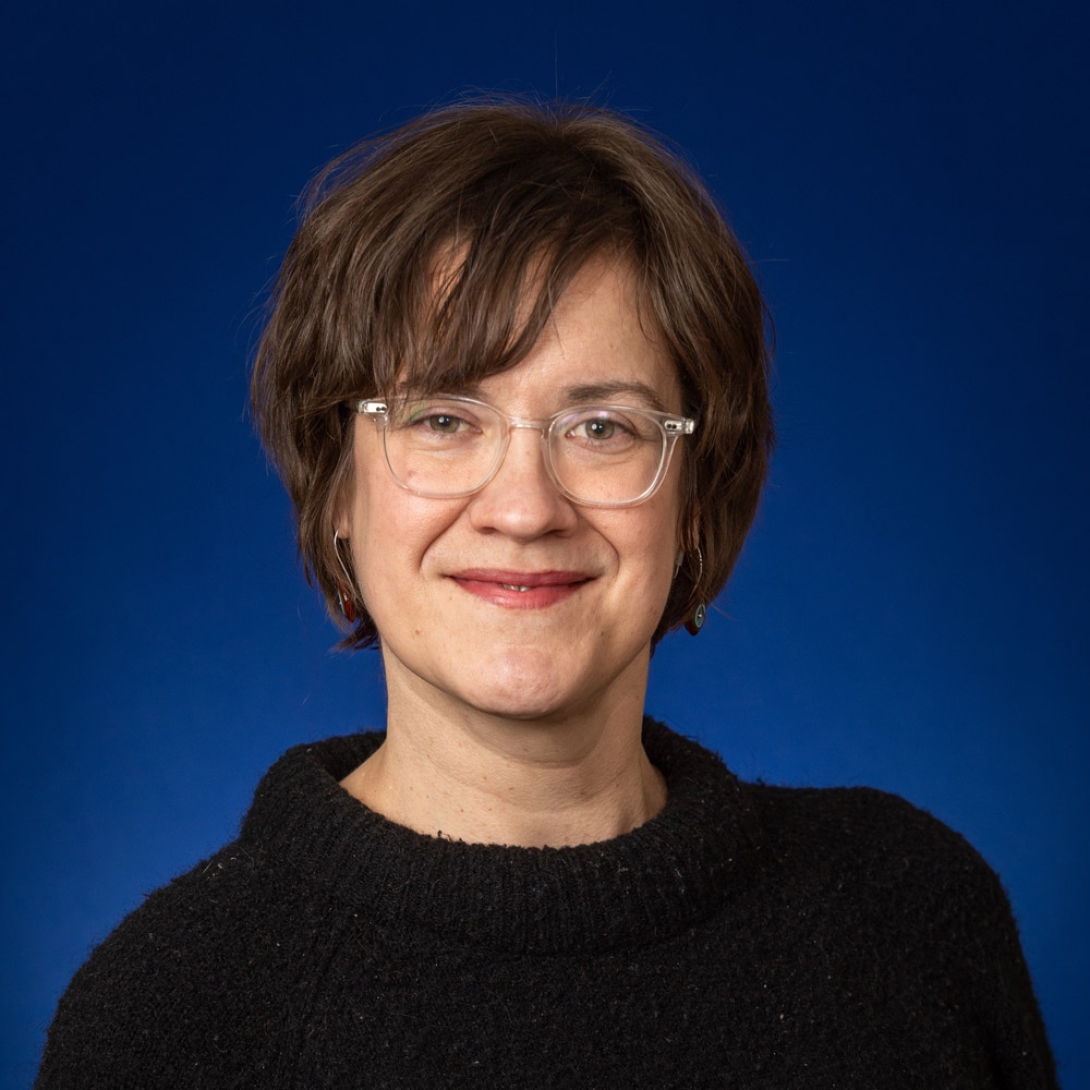
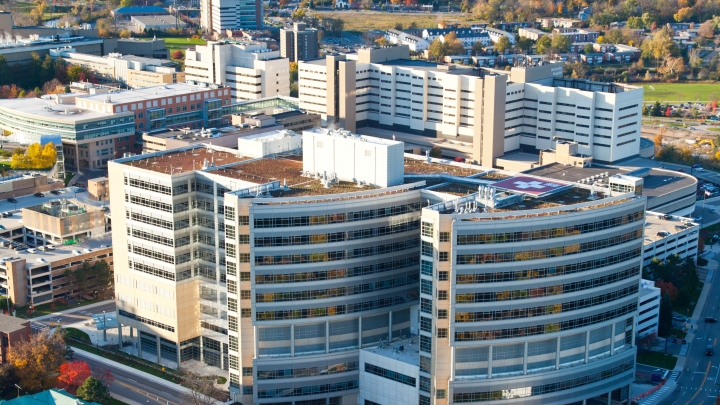
Nationally-recognized physicians provide patients with a full spectrum of pregnancy and childbirth care, as well as gynecologic care before and after pregnancy. For high-risk pregnancies, U-M Medical School’s Fetal Diagnosis and Treatment Center offers comprehensive fetal services, utilizing the latest technological advances in diagnostics, minimally invasive surgeries and open surgeries.

We find a new reason to love Ann Arbor nearly every day — year-round outdoor activities, cultural experiences, a growing food scene, and a welcoming, family-friendly atmosphere are just a few that come to mind. Explore all that Ann Arbor and our surrounding communities have to offer.


